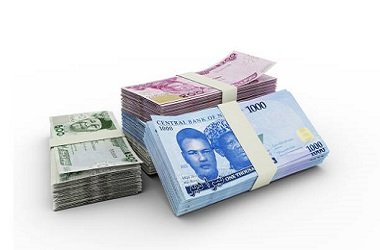Nigeria’s Revenue from foreign taxes nearly doubled in 2023 over weak naira
Nigeria, like many other countries, relies on various sources of revenue to finance its government expenditures and support economic development. One significant source of revenue for Nigeria is taxes, including both domestic and foreign taxes. Foreign taxes typically refer to taxes levied on foreign entities operating within the country's borders or on Nigerian entities conducting business abroad. I will like to tell you more about the increase revenue from foreign taxes for Nigeria as you read more below.

Several factors could contribute to Nigeria's earnings from foreign taxes nearly doubling in 2023, with the weakening of the naira likely playing a significant role. The naira, Nigeria's national currency, has faced persistent depreciation against major foreign currencies in recent years due to various economic challenges, including declining oil prices, fiscal deficits, and external pressures.
A weakened naira can have several implications for Nigeria's economy, including increased revenue from foreign taxes. Here are some potential factors and mechanisms through which this could occur:
- Export Earnings: Nigeria is a major exporter of crude oil, with oil revenues historically accounting for a significant portion of government revenue. When the naira depreciates against foreign currencies, the proceeds from oil exports denominated in US dollars or other foreign currencies translate into more naira for the government. This increase in oil revenue could contribute to higher overall tax collections, including foreign taxes.
- Foreign Investment: A weaker naira can make Nigerian assets, such as stocks, real estate, and bonds, more attractive to foreign investors. Foreign investors looking to take advantage of relatively cheaper asset prices may increase their investments in Nigeria, leading to higher capital inflows and potentially greater tax revenue from corporate taxes, capital gains taxes, and other levies on investment income.
- Remittances: Nigeria is a significant recipient of remittances from its diaspora, with millions of Nigerians living and working abroad. When the naira depreciates, remittances sent back to Nigeria from abroad become more valuable in local currency terms. As a result, individuals and households receiving remittances may have more disposable income, leading to increased consumption and economic activity. This uptick in economic activity could generate higher tax revenues from consumption taxes, such as value-added tax (VAT), as well as from personal income taxes.
- Tourism and Services: A weaker naira can make Nigeria a more affordable destination for foreign tourists and businesses seeking services such as hospitality, healthcare, education, and consulting. Increased tourism and service-related activities could generate additional tax revenue from various sources, including sales taxes, hotel occupancy taxes, and corporate income taxes on service providers.
- Trade Dynamics: Exchange rate movements can influence the competitiveness of Nigerian exports and imports. A weaker naira may make Nigerian exports more competitive in international markets, potentially boosting export volumes and revenues. Conversely, it could make imports more expensive, leading to a shift in consumer preferences toward domestically produced goods and services. Changes in trade dynamics could affect tax revenue from customs duties, excise taxes, and other trade-related levies.
- Debt Servicing: Nigeria has external debt denominated in foreign currencies, such as US dollars and euros. When the naira depreciates, the cost of servicing this debt in local currency terms increases. As a result, the government may need to allocate more resources toward debt servicing, which could put pressure on its fiscal position. However, if the government successfully manages its debt obligations and avoids default, it could help maintain investor confidence and support overall economic stability, which in turn could positively impact tax revenues.
SEE ALSO: SEE CURRENT PRICE OF CEMENT IN NIGERIA
It's essential to note that while a weaker naira may lead to increased revenue from foreign taxes in the short term, there are also potential downsides and risks associated with currency depreciation. These include inflationary pressures, higher import costs, reduced purchasing power for consumers, and challenges for businesses that rely on imported inputs or foreign currency financing.
Additionally, the effectiveness of policies aimed at capitalizing on the benefits of a weaker naira, such as attracting foreign investment and promoting export-led growth, depends on various factors, including the government's economic management, structural reforms, and external conditions such as global economic trends and geopolitical developments.
In conclusion, Nigeria's earnings from foreign taxes nearly doubling in 2023 over a weak naira could be attributed to a combination of factors, including increased export earnings, higher foreign investment inflows, greater remittances, expanded tourism and services sector activities, shifts in trade dynamics, and the impact of currency depreciation on debt servicing. However, it's essential to monitor economic developments closely and assess their long-term implications for Nigeria's fiscal sustainability, economic growth, and overall welfare of its citizens.
Spread the Word: if you found this article useful, help others discover it too! Just click and share using the buttons below!
What's Your Reaction?




















